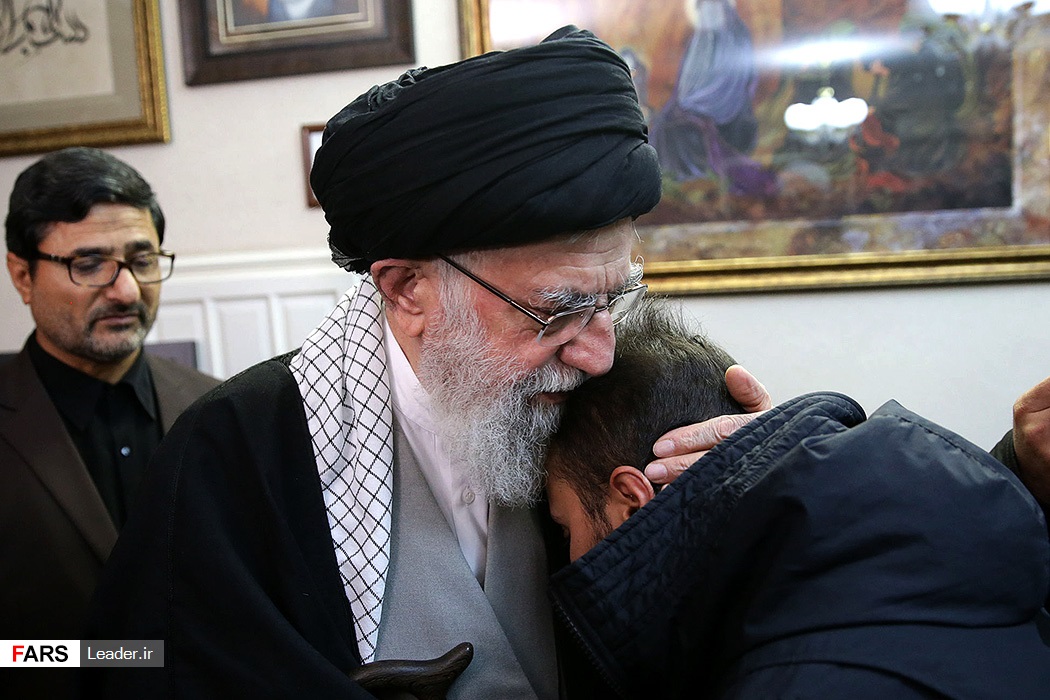A new Wild West has taken root not far from Tombstone, Arizona, known to many for its faux-historical reenactments of the old West. We’re talking about a long, skinny territory — a geographic gerrymander — that stretches east across New Mexico and down the Texan Rio Grande to the Gulf of Mexico. It also runs west across hundreds of miles of desert to California and the Pacific Ocean. Like the old Wild West, this one is lawless, save for the law of the gun. But that old West was lawless for want of government. This one is lawless because of it.
The Department of Homeland Security, under authority conferred by Congress, has declared more than 50 federal laws inoperable along sections of the U.S. boundary with Mexico, the better to build the border wall that Donald Trump has promised his “base.” Innumerable state laws and local ordinances have also been swept aside. Predictably, the Endangered Species Act is among the fallen. So are the National Historic Preservation Act, the Wilderness Act, laws restricting air and water pollution, and measures protecting wildlife, landscapes, Native American sacred sites, and even caves and fossils.
The new Wild West of the border wall is an authoritarian dreamscape where the boss man faces no limits and no obligations. It’s as though Marshall Wyatt Earp, reborn as an orange-haired easterner with no knowledge of the actual West, were back in charge, deciding who’s in and who’s out, what goes and what stays.
Prominent on the list of suspended laws is the 1970 National Environmental Policy Act, or NEPA, which, until recently, was the nation’s look-before-you-leap conscience. The environmental analyses and impact statements NEPA requires might not force the government to evaluate whether a palisade of 30-foot-high metal posts — bollards in border wall terminology — were really a better way to control drug smuggling than upgrading inspection facilities at ports of entry, where, by all accounts, the vast majority of illegal substances enter the country. They would, however, require those wall builders to figure out in advance a slew of other gnarly questions like: How will wildlife be affected by a barrier that nothing larger than a kangaroo rat can get through? And how much will pumping scarce local water to make concrete draw down shallow desert aquifers?
The questions get big, fast. One that might look easy but isn’t concerns the flashfloods that stream down desert washes. The uprights of the border wall are to be spaced only four inches apart, which means they’ll catch flood debris the way a colander catches spaghetti.
Let’s get specific. The San Bernardino National Wildlife Refuge abuts the border in the far southeastern corner of Arizona. Black Draw, a gulch running through the middle of the refuge, is normally as dry as a hot sidewalk. When thunderstorms burst over the vast San Bernardino Valley, however, the floodwaters can surge more than 20 feet high. Imagine a wall of chocolate water sweeping up tree trunks, uprooted bushes, the occasional dead cow, and fence posts snarled in wire. Imagine what happens when that torrent meets a barrier built like a strainer. The junk catches and creates a dam. Water backs up, and pressure builds. If the wall were built like the Hoover Dam, it might hold, but it won’t be and it won’t.
In 2014, a flood in Black Draw swept vehicle barriers aside, scattering pieces downstream. Local ranchers have shown me the pictures. You could say the desert was making a point about how wet it could be. In fact, there’s no mystery about what will happen when such a flood hits a top-heavy palisade. If a NEPA document were to evaluate the border wall, the passage discussing this eventuality might require its writer to invent a term for what a wall becomes when it lies flat on the ground.
On the other hand, if you leave gaps for floods to pass through, then smugglers and — for Donald Trump and his base — people of unacceptably dark skin color might come the other way. Not that they necessarily would. As local residents I talked to attest, active patrols, remote sensing, and improved coordination among law enforcement agencies have reduced illegal crossings in the San Bernardino Valley almost to zero, something current government officials don’t point out but a NEPA document would.
With NEPA out of the picture, the responsible parties only have to claim that they’ll figure out a solution later and, when “later” comes, maybe they’ll have conveniently moved on to other jobs.
Pittsburgh on the Border
Meanwhile, there’s another question that won’t have to be dealt with: How much water will the wall’s construction require? The answer matters in an area where water’s scarce. Again, the San Bernardino National Wildlife Refuge offers a useful vantage point for considering the question.
To get to the refuge, you drive east from the town of Douglas along the Geronimo Trail, an unpaved two-lane country road that earns its name honestly. Nineteenth-century Apache leader Geronimo surrendered to the U.S. military in the mountains on the horizon just ahead of you. Shortly before you reach the refuge, you top a low rise overlooking what the local assessor initially mistook for a new industrial park. It was as if a section of Pittsburgh or Youngstown had suddenly sprouted from the desert, with enough mesquite and creosote bush scraped away to accommodate a concrete-batching plant, office trailers, and a massive staging area and machinery yard.
Stacks of steel bollards stand taller than houses, covering the space of a neighborhood. A grid of steel rails for laying out those bollards and welding them into pre-fab wall sections occupies another acre or two, beyond which stacks of completed sections cover yet more acres. In front of those stacks, a few scraps of wall stand vertical but disjointed, like shrines to a metal god — probably practice erections, if you’ll pardon the phrase. Scattered through the site are forklifts, graders, loaders, bulldozers, excavators, pickup trucks, flatbeds, and cranes. Generators and floodlights on wheeled rigs are parked at the margins, ready to illuminate round-the-clock shifts. Close to the batching tower, which may rival the Gadsden Hotel in Douglas as the tallest structure in Cochise County, cement trucks cluster like a litter of puppies.
And more steel keeps arriving. An approaching cloud of dust on the Geronimo Trail signals a line of incoming semis loaded with still more bollards. They pass newly posted signs that say: “Be Aware: Equipment Has the Right of Way” and “Risk Takers Are Accident Makers.”
These details, however, are prelude to the main event. If you look toward Mexico, a half-mile of wall already stands in place, undulating with the hills. Think of it as a dark, linear Steelhenge, a monolith screening the shimmering Sonoran mountains to the south. You can see where the next sections will be raised. Construction has already reached the refuge.
Where the Deer and the Antelope Better Not Play
The surface and subsurface flow of water from nearly the entire San Bernardino Valley converges at the refuge, creating an oasis in the heart of the desert. If this were the Sahara, caravansaries would have stopped by its green pools for thousands of years. As it is, Apaches, Yaquis, Tohono O’odham, and their predecessors have used its waters since time out of mind, as did the Spaniards, Mexicans, and Americans who later strove to take the land from them and from each other. The ponds lie half-hidden amid jungles of reeds.
San Bernardino National Wildlife Refuge is modest as refuges go — only 2,369 acres — but it was once part of the sprawling, 73,240-acre Slaughter Ranch, two-thirds of which lay in Mexico. Next to the refuge, the ranch headquarters, now a historic site, has its own big pond. From that pond or any of those on the refuge, a major-league slugger could knock a baseball out of the country.
Contractors building the wall have drilled three wells along the border and leased a fourth. Tanker trucks constantly shuttle between the wells and the concrete plant. Nobody is saying how much water wall construction will consume. The foundation for the wall will be — what? A yard wide and seven-feet deep? Ten-feet deep? Sorry, that’s privileged information, not for public consumption.
Anyway, the foundation just in this area will run for scores of miles, farther than you can see, and consume enough concrete to build a small town — and concrete requires water. Lots of it.
How much will the pumping deplete local aquifers? Nobody knows because, absent NEPA, nobody has had to figure it out. There’s been no modeling, no serious testing, no reliable calculations. Still, local ranchers would like to know the answer. They depend on wells and water tanks scattered through the desert scrub where their cattle drink.
Good luck to them. And good luck, as well, to the critters for which the refuge is supposed to provide… well, refuge.
I could print a list of the unusual fish, frogs, snails, snakes, and other living things that are found here and almost nowhere else on Earth, not to mention the rare plants, the itinerant mammals (some also rare), and the hundreds of species of birds that use this place. In the desert, reliable water is a kind of miracle that attracts and creates other miracles.
San Bernardino National Wildlife Refuge, you might say, is a cluster of miracles. There are too many to list. And a long list of weird names would take up a lot of space and sound pinheaded. I care a lot about those creatures, but I don’t want to sound like that.
To be honest, I’m almost afraid to learn the names of some of the refuge’s creatures because then it would only hurt all the more if they decline to extinction. The wall will certainly nudge, or maybe shove, many of them in that direction. Nevertheless, I have to mention two of them. Their names suggest a kind of taxonomic poetry, a nature music. They aren’t necessarily the rarest, but they sound the best: Yaqui topminnow. Chiricahua leopard frog. The words fall on the ears like melodies, evoking the mystery of tender life in a harsh land. As members of a species, you and I are as common as coal. In the big biological scheme of things, creatures like these are rubies and sapphires.
Forget Policy, Follow the Metaphor
It’s impossible to understand the wall, at least in the San Bernardino Valley, in terms of policy. As one rancher put it to me over coffee at the Gadsden Hotel, “This [wall] may be needed someplace, but it isn’t needed here.”
If Trump’s wall were really about policy, its advantages and disadvantages would be weighed against other strategies requiring different kinds of investment. But this is the new Wild West, where rational judgment, laws, and procedures only get in the way.
The truth of the wall lies in metaphor. If Chiricahua leopard frog conveys a kind of poetic resonance to people like me, then for millions of others chanting “Build the Wall!” is like hitting a big bass drum. Everybody understands wall! Even if the structure doesn’t actually work in physical space, it works in your mind. It stands between you and everything bad you can imagine. The core truth that unites Trump and his supporters is that he hates who we hate — and the border wall stands for keeping out those unwanted people and all they represent.
This is why the wall can’t coexist with NEPA. Impact statements don’t do imagery. If you really want to crack down on drug smuggling, for example, you’d concentrate your efforts at established ports of entry, where billions of dollars of goods and millions of people cross from one country to the other every day. The bulk of the fentanyl, cocaine, heroin, and other hard drugs entering the U.S. is reportedly concealed among legitimate imports in railroad cars and trucks of every description. Or they get stashed in secret compartments in buses, vans, cars, and pickup trucks. (The U.S. mail is another major conduit.) Currently, it’s estimated that more than $4 billion in new scanners, inspection lanes, and the people to staff them are needed. Making that investment would have infinitely more impact on drug flow than using the same money to install bollards where they aren’t needed and won’t last. There are better ways to handle people, too, but let’s not get distracted from the real story.
Expenditures on wall construction in Fiscal Year 2019 ran to approximately $10 billion. Only a third of that amount was actually appropriated by Congress for border security structures. Delivering the rest of the money required masterful circumventions of constitutional intent.
Here’s one of them: each year Congress appropriates so-called 2808 funds to the Department of Defense for construction projects on military bases, including schools, clinics, roads, and other infrastructure. Such expenditures are restricted to military property and the international border with Mexico isn’t — or wasn’t — a military base. For the Trumpistas, however, not a problem.
In 1907, President Teddy Roosevelt reserved a 60-foot easement from the public domain along the southern border to keep it “free from obstruction as a protection against the smuggling of goods between the United States and Mexico.” Since then, the “Roosevelt easement” has been administered by the Bureau of Land Management, but last year the Trump administration transferred the easement to the Department of Defense, which obligingly assigned it as a real-estate asset to Fort Bliss, Texas.
Voilà! Now, the Roosevelt Easement is part of a military base and a tendril of Fort Bliss officially extends into Arizona, New Mexico, and California — but not Texas. (The Lone Star State reserved its public land for itself when it entered the union, so no Roosevelt Easement there.) Technically, border wall construction within the easement now constitutes an improvement to Fort Bliss, enhancing military preparedness, yadda, yadda, yadda. There’s more to it than that, including the president’s formal declaration of a national emergency last February, which enabled certain other steps, but you get the idea. Where there’s a will, there’s an imperial way.
As it happens, however, the Pentagon’s money for funding wall construction across the foot of the San Bernardino refuge itself comes from a different pot: “284” funds, intended for counter-narcotics work. Diverting $2.5 billion of these monies to the border wall was, to say the least, a stretch, so a coalition of humanitarian and environmental groups sued. A district court found in their favor and issued an injunction, halting the use of the funds for construction. A rapid series of appeals went to the Supreme Court and the Supremes said, Hmmm, interesting question, which will take time for the lower courts to resolve; meanwhile, the injunction is lifted. And so funding again flowed like a flash flood. If the courts ultimately decide that the transfer of funds is really not okay, the wall may already have been built. Thank you, Supremes.
Dollars and Nonsense
I forgot to mention something: in addition to suspending more than 50 laws protecting lands, wildlife, and the public interest, the government has also waived many procurement laws and also buried a lot of contract information. This means you and I will have a hard time learning what anything actually costs, even though our tax dollars are paying for it.
Example: the barrier to be built along the edge of the San Bernardino refuge, cutting off its terrestrial wildlife from the Mexican half of its world and quite possibly draining the ponds where some of the planet’s rarest creatures survive, is part of a contract for 63 miles of border wall awarded to Southwest Valley Constructors (SWVC), a subsidiary of Kiewit, a Fortune 500 company with $9 billion in annual sales.
The original May 2019 contract awarded $646 million to SWVC, putting the cost of the refuge wall at $10.25 million per mile, a veritable steal. But you would need to know someone who can log into the relevant government database to discover that the fifth modification of the original contract, signed on August 29th, added another $653 million to the kitty. Now, those 63 miles are going to cost $1.3 billion, or almost $21 million per mile.
And by the way, did I mention that construction will include a power line and floodlights on 60-foot masts to illuminate the wall all night long, every night of the year? I have friends in the San Bernardino Valley who just about weep — and they aren’t weepy people — when they think about the lights on that wall blazing away in what used to be the immense, holy darkness of their formerly unblemished land.
I can get pretty choked up about it myself, but you can be sure that smugglers won’t. Here’s where things get truly weird: believe it or not, darkness is an ally of the U.S. Customs and Border Patrol (CBP). Its people have night vision goggles and its drones and other sensors have infrared detectors. They don’t need light. Flood the border with light and, counter-intuitively, the CBP is blinded, losing an advantage. Whose idea was this? Nobody’s saying, but it seems to have come from, ahem, the highest level. Good thing NEPA doesn’t apply.
Let’s turn up the weirdness a little bit further: out in western Arizona, close to the California line, you come to the Barry M. Goldwater Range (BMGR). Here, young Air Force and Marine pilots learn to strafe and bomb. Migrants have been known to cross the international border at the BMGR but, according to court filings, over the past five years migrants have gotten in the way of only 195 of 255,732 air sorties – less than 0.1%.
An already existing pedestrian barrier along much of the range’s border possibly contributes to this low level of trespass — and the bombs and bullets may help, too. But the decisive factor is undoubtedly the range’s spectacular heat and aridity and the mortally long distances a migrant would have to walk to reach any possible pick-up or rendezvous spot. Nevertheless a second wall, backing up the first, is now slated for construction at BMGR, with a road sandwiched between the two walls, down which CBP patrols will race like hamsters on a flattened wheel.
Let’s just agree, as former Joint Chiefs of Staff Chairman General Joseph Dunford, Jr., did in a memorandum to then-acting Secretary of Defense Patrick Shanahan, that double-walling the BMGR makes no sense in terms of policy. In terms of metaphor, however, double-walling a border where essentially nobody goes is perfectly logical. If the goal is to build miles of wall, costs and benefits be damned, you might as well build them where there’s nobody to get in the way. Build the wall!
And so it is indeed being built, at the cost of violating not just the San Bernardino National Wildlife Refuge, but Cabeza Prieta National Wildlife Refuge, Organ Pipe National Monument, the Lower Rio Grande National Wildlife Refuge, the Santa Ana National Wildlife Refuge, the historic town center of Roma, Texas, and other sublime and exceptional places. One might ask why so much uniqueness and rarity lies along our southern border. The short answer is that the borderlands are the meeting place of biological communities as well as cultures. As Chicano performance artist Guillermo Gómez-Peña puts it, “The border is the juncture, not the edge.”
But an edge is exactly what President Trump’s wall would make it. Wall construction was and remains his foremost campaign pledge: 500 miles of wall by November of 2020, or 450 miles, or whatever the number du jourhappens to be. Speaker Nancy Pelosi, the Washington Post, and others have tried to deflate the president’s boasts by asserting that he’s actually built no new wall and his promises are empty.
In their calculations, substituting a 30-foot-tall wall for vehicle barriers is only “replacement” and therefore doesn’t constitute “new” construction. That’s like arguing that mooring an aircraft carrier where a rowboat used to be changes nothing because there’s still just one vessel in the harbor. Such semantic jousting only camouflages the pervasive damage already being done both to people and to the land on the border — and there’s no end in sight. The congressional budget agreement hammered out in December 2019 appropriates another $1.375 billion for wall construction for fiscal year 2020, while removing obstacles to yet more transfers of Pentagon funds. And Trump is not being shy about those transfers. He evidently plans to divert $7.2 billion more from legitimate Pentagon projects to wall building this year.
The international drug cartels should be thanking us. The wall will not curb their principal business of smuggling and the Trump administration’s new immigration policies have turned what was formerly a minor sideline — kidnapping people for ransom — into a growth industry. Tens of thousands of asylum seekers to whom the U.S. has refused entry are now huddled in cardboard slums in Mexico’s border towns, vulnerable to human predators. Their relatives in the United States — the people they were trying to reach — will beg, borrow, or steal to pay the ransoms that the increasingly busy (and brutal) kidnappers in Mexico demand.
That, however, is just collateral damage in the land of the free. Of course, we treat asylum seekers as though they were an inferior variety of human being. They talk funny. They aren’t like us. And we treat the borderlands and its creatures with the same loyalty we showed the Kurds. After all, we are America. Behind our wall, we are great again.
*
Note to readers: please click the share buttons above or below. Forward this article to your email lists. Crosspost on your blog site, internet forums. etc.
William deBuys, a TomDispatch regular, is the author of nine books, including The Last Unicorn: A Search for One of Earth’s Rarest Creatures and A Great Aridness: Climate Change and the Future of the American Southwest.
Featured image: Homeland Security Secretary Kirstjen Nielsen speaks during a visit to President Trump’s border wall in the El Centro Sector in Calexico, California. © Reuters / Earnie Grafton












































As the world’s business elites trek to Davos for their annual gathering, people should be asking a simple question: Have they overcome their infatuation with US President Donald Trump?
Two years ago, a few rare corporate leaders were concerned about climate change, or upset at Trump’s misogyny and bigotry. Most, however, were celebrating the president’s tax cuts for billionaires and corporations and looking forward to his efforts to deregulate the economy. That would allow businesses to pollute the air more, get more Americans hooked on opioids, entice more children to eat their diabetes-inducing foods, and engage in the sort of financial shenanigans that brought on the 2008 crisis.
Today, many corporate bosses are still talking about the continued GDP growth and record stock prices. But neither GDP nor the Dow is a good measure of economic performance. Neither tells us what’s happening to ordinary citizens’ living standards or anything about sustainability. In fact, US economic performance over the past four years is Exhibit A in the indictment against relying on these indicators.
To get a good reading on a country’s economic health, start by looking at the health of its citizens. If they are happy and prosperous, they will be healthy and live longer. Among developed countries, America sits at the bottom in this regard. US life expectancy, already relatively low, fell in each of the first two years of Trump’s presidency, and in 2017, midlife mortality reached its highest rate since World War II. This is not a surprise, because no president has worked harder to make sure that more Americans lack health insurance. Millions have lost their coverage, and the uninsured rate has risen, in just two years, from 10.9% to 13.7%.
One reason for declining life expectancy in America is what Anne Case and Nobel laureate economist Angus Deaton call deaths of despair, caused by alcohol, drug overdoses, and suicide. In 2017 (the most recent year for which good data are available), such deaths stood at almost four times their 1999 level.
The only time I have seen anything like these declines in health – outside of war or epidemics – was when I was chief economist of the World Bank and found out that mortality and morbidity data confirmed what our economic indicators suggested about the dismal state of the post-Soviet Russian economy.
Trump may be a good president for the top 1% – and especially for the top 0.1% – but he has not been good for everyone else. If fully implemented, the 2017 tax cut will result in tax increases for most households in the second, third, and fourth income quintiles.
Given tax cuts that disproportionately benefit the ultrarich and corporations, it should come as no surprise that there was no significant change in the median US household’s disposable income between 2017 and 2018 (again, the most recent year with good data). The lion’s share of the increase in GDP is also going to those at the top. Real median weekly earnings are just 2.6% above their level when Trump took office. And these increases have not offset long periods of wage stagnation. For example, the median wage of a full-time male worker (and those with full-time jobs are the lucky ones) is still more than 3% below what it was 40 years ago. Nor has there been much progress on reducing racial disparities: in the third quarter of 2019, median weekly earnings for black men working full-time were less than three-quarters the level for white men.
Making matters worse, the growth that has occurred is not environmentally sustainable – and even less so thanks to the Trump administration’s gutting of regulations that have passed stringent cost-benefit analyses. The air will be less breathable, the water less drinkable, and the planet more subject to climate change. In fact, losses related to climate change have already reached new highs in the US, which has suffered more property damage than any other country – reaching some 1.5% of GDP in 2017.
The tax cuts were supposed to spur a new wave of investment. Instead, they triggered an all-time record binge of share buybacks – some $800 billion in 2018 – by some of America’s most profitable companies, and led to record peacetime deficits (almost $1 trillion in fiscal 2019) in a country supposedly near full employment. And even with weak investment, the US had to borrow massively abroad: the most recent data show foreign borrowing at nearly $500 billion a year, with an increase of more than 10% in America’s net indebtedness position in one year alone.
Likewise, Trump’s trade wars, for all their sound and fury, have not reduced the US trade deficit, which was one-quarter higher in 2018 than it was in 2016. The 2018 goods deficit was the largest on record. Even the deficit in trade with China was up almost a quarter from 2016. The US did get a new North American trade agreement, without the investment agreement provisions that the Business Roundtable wanted, without the provisions raising drug prices that the pharmaceutical companies wanted, and with better labor and environmental provisions. Trump, a self-proclaimed master deal maker, lost on almost every front in his negotiations with congressional Democrats, resulting in a slightly improved trade arrangement.
And despite Trump’s vaunted promises to bring manufacturing jobs back to the US, the increase in manufacturing employment is still lower than it was under his predecessor, Barack Obama, once the post-2008 recovery set in, and is still markedly below its pre-crisis level. Even the unemployment rate, at a 50-year low, masks economic fragility. The employment rate for working-age males and females, while rising, has increased less than during the Obama recovery, and is still significantly below that of other developed countries. The pace of job creation is also markedly slower than it was under Obama.
Again, the low employment rate is not a surprise, not least because unhealthy people can’t work. Moreover, those on disability benefits, in prison – the US incarceration rate has increased more than sixfold since 1970, with some two million people currently behind bars – or so discouraged that they are not actively seeking jobs are not counted as “unemployed.” But, of course, they are not employed. Nor is it a surprise that a country that doesn’t provide affordable childcare or guarantee family leave would have lower female employment – adjusted for population, more than ten percentage points lower – than other developed countries.
Even judging by GDP, the Trump economy falls short. Last quarter’s growth was just 2.1%, far less than the 4%, 5%, or even 6% Trump promised to deliver, and even less than the 2.4% average of Obama’s second term. That is a remarkably poor performance considering the stimulus provided by the $1 trillion deficit and ultra-low interest rates. This is not an accident, or just a matter of bad luck: Trump’s brand is uncertainty, volatility, and prevarication, whereas trust, stability, and confidence are essential for growth. So is equality, according to the International Monetary Fund.
So, Trump deserves failing grades not just on essential tasks like upholding democracy and preserving our planet. He should not get a pass on the economy, either.
*
Note to readers: please click the share buttons above or below. Forward this article to your email lists. Crosspost on your blog site, internet forums. etc.
Joseph E. Stiglitz, a Nobel laureate in economics, is University Professor at Columbia University and Chief Economist at the Roosevelt Institute. His most recent book is People, Power, and Profits: Progressive Capitalism for an Age of Discontent.
Featured image is from Project Syndicate